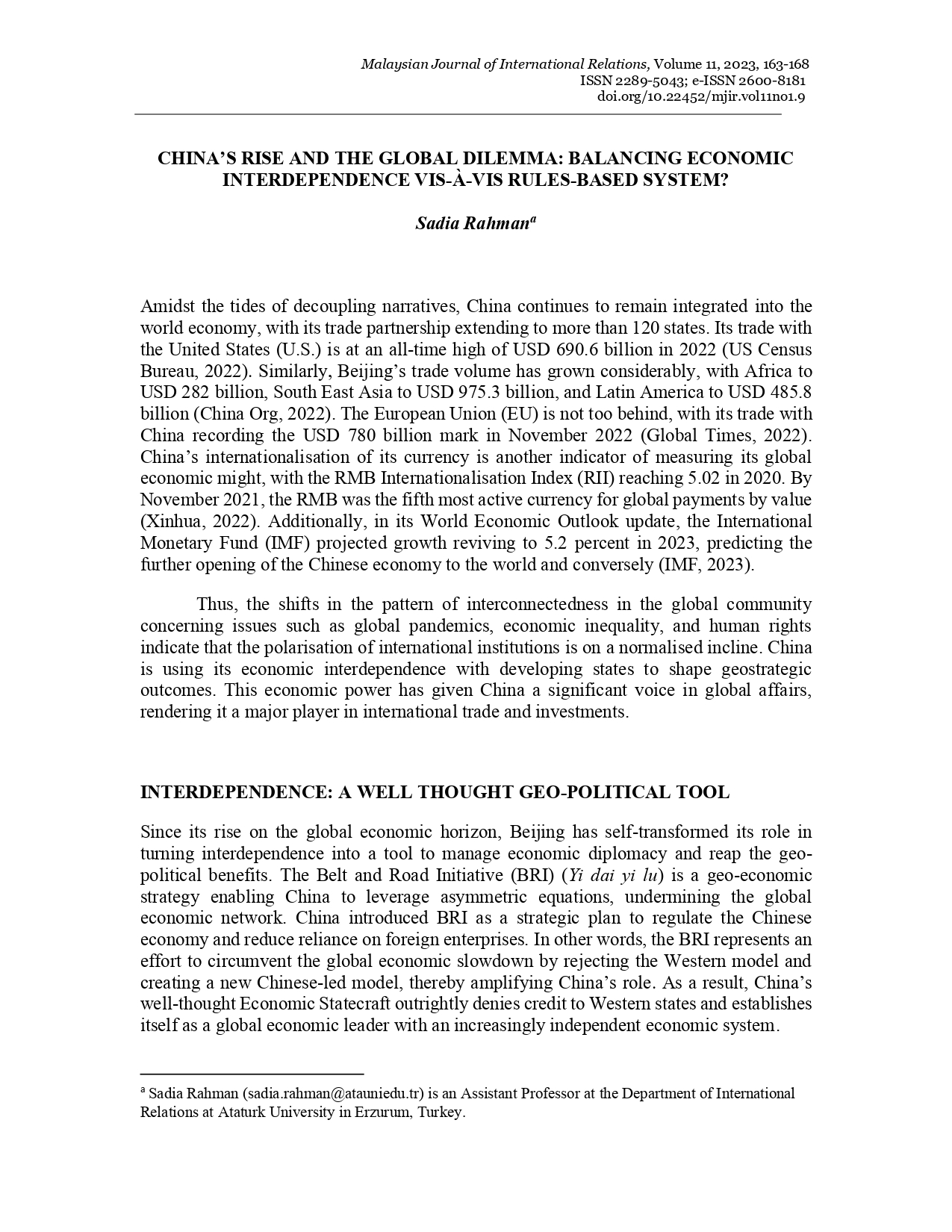China’s Rise and the Global Dilemma: Balancing Economic Interdependence vis-à-vis Rules-Based System?
Main Article Content
Abstract
China's rise as an economic and geopolitical power has created a dilemma for the global community as it challenges the balance of economic interdependence vis-a-vis the rules-based system. China's growing assertiveness in the international arena and disregard for established international norms and rules has raised concerns about the future of the rules-based system and its impact on global governance. China's expanding military capabilities and assertive territorial claims have further fueled concerns about its intention to alter the existing global order. Thus, the article underscores that as a foreign policy tool, China has been using economic coercion, weaponising interdependence by leveraging its economic power over developing states to achieve political and strategic objectives. In addition, China has established parallel multilateral institutions to promote its interests and challenge the dominance of traditional Western-led institutions. These institutions provide an alternative to the existing global economic order, which China sees as being dominated by the West. The outcome of China's activism is that it has been able to form like-minded alliances at the United Nations and other prominent institutions, thereby posing a risk and an uncertain future for global governance and the balance of power in the international system.
Key Words: China, Economic Coercion, Weaponized Interdependence, Global Governance
